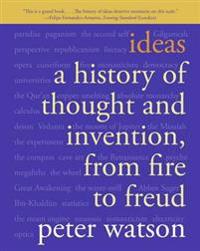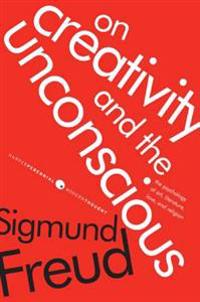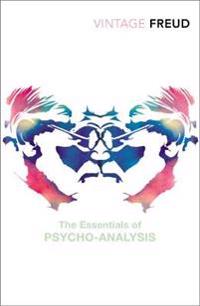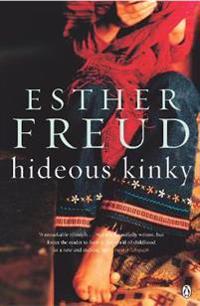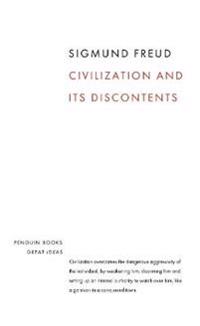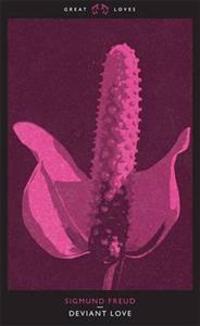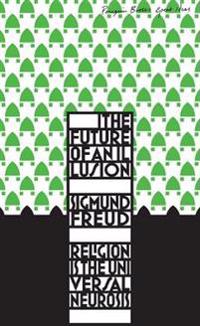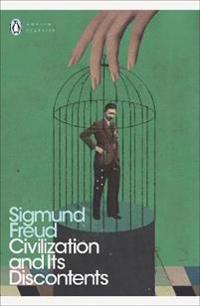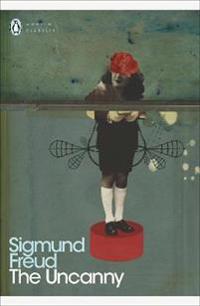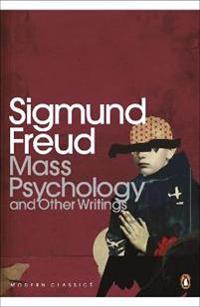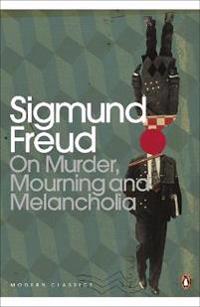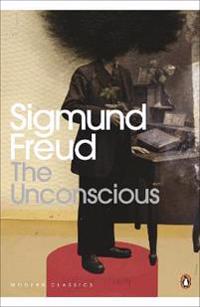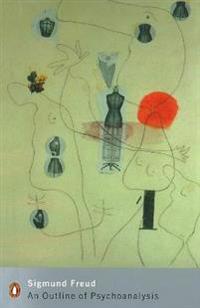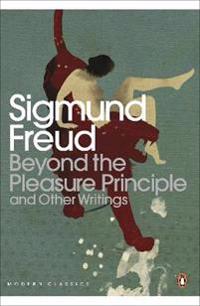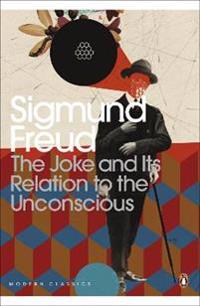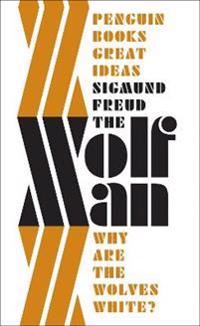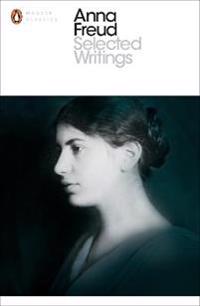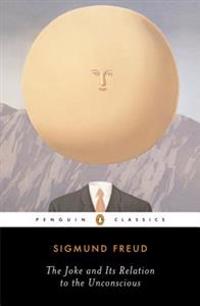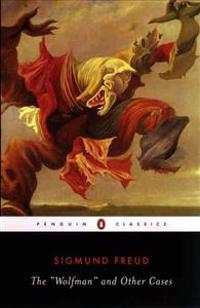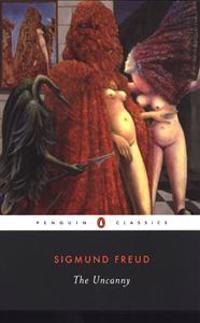Freud: Inventor of the Modern Mind
ISBN: 9780060598952 - UTGIVEN: 2006-11A concise portrait of the founder of psychoanalysis discusses his advocacy of the "talking cure" method of therapy, his pioneering role in establishing modern understanding of the human unconscious, and his enduring influence on modern psychiatry. By the author of Listening to Prozac.[...]
Ideas: A History of Thought and Invention, from Fire to Freud (Häftad)
avPeter Watson
ISBN: 9780060935641 - UTGIVEN: 200609Traces the evolution of numerous schools of thought in the western intellectual and cultural communities, from beliefs about paradise and the invention of mathematical principles to the creation of language and theories about the origins of life, in a narrative account that offers insight into human[...]
On Creativity and the Unconscious: The Psychology of Art, Literature, Love, and Religion (Häftad)
avSigmund Freud, Benjamin Nelson
ISBN: 9780061718694 - UTGIVEN: 200903On Creativity and the Unconscious brings together Freud's important essays on the many expressions of creativity--including art, literature, love, dreams, and spirituality. This diverse collection includes "The 'Uncanny, '" "The Moses of Michelangelo," "The Psychology of Love," "The Relation of the [...]
Freud: Inventor of the Modern Mind (Häftad)
avPeter D. Kramer
ISBN: 9780061768897 - UTGIVEN: 2009-11Referred to as "the father of psychoanalysis," Sigmund Freud is credited with championing the "talking cure" and charting the human unconscious. Both revered and reviled, he was a brilliant innovator but also a man of troubling contradictions--sometimes tyrannical, often misrepresenting the course a[...]
The Essentials of Psychoanalysis (Storpocket)
avSigmund Freud
ISBN: 9780099483649 - UTGIVEN: 200506"The Essentials of Psycho-Analysis" is the definitive collection of Sigmund Freud's writing. It covers the themes that Freud explored in his work from the meaning of dreams and the concept of the unconscious, instinctual and sexual life to the structure of the personality. Beautifully written and en[...]
The Freud Reader (Storpocket)
ISBN: 9780099577119 - UTGIVEN: 1995-05Freudian thought permeates virtually every aspect of 20th century life. To understand Freud is to explore not only his scientific papers but also his vivid writings on art, literature, politics, religion and culture. The Freud Reader is the first single-volume work to bring together in accessible fo[...]
Hideous Kinky (Storpocket)
avEsther Freud
ISBN: 9780140174120 - UTGIVEN: 1993-02Two little girls are taken by their mother to Morocco on a 1960s pilgrimage of self-discovery. For Mum, it is not just an escape from the grinding conventions of English life but a quest for personal fulfilment; her children, however, seek something more solid and stable amidst the shifting desert s[...]
Civilization and Its Discontents (Pocket)
avSigmund Freud
ISBN: 9780141018997 - UTGIVEN: 200409Throughout history, some books have changed the world. They have transformed the way we see ourselves - and each other. They have inspired debate, dissent, war and revolution. They have enlightened, outraged, provoked and comforted. They have enriched lives - and destroyed them. Now Penguin brings y[...]
Deviant Love (Pocket)
avSigmund Freud
ISBN: 9780141032863 - UTGIVEN: 200708Sigmund Freud, the founder of modern psychoanalysis, remade our view of the human mind by exploring the unconscious forces that drive us. This collection of his groundbreaking writings on the psychology of love examines the nature of desire, transgression, fantasy and erotic taboo. United by the the[...]
The Future of an Illusion (Pocket)
avSigmund Freud
ISBN: 9780141036762 - UTGIVEN: 200808This investigation of religion by greatest psychoanalyst of the twentieth-century explores the role faith can take in the life of man, what it can mean to us and why as a species we are inclined towards it. Throughout history, some books have changed the world. They have transformed the way we see o[...]
Civilization and Its Discontents (Storpocket)
avSigmund Freud, Leo Bersani
ISBN: 9780141182360 - UTGIVEN: 2002-07In what remains one of his most seminal papers, Freud considers the incompatibility of civilisation and individual happiness, and the tensions between the claims of society and the individual. We all know that living in civilised groups means sacrificing a degree of personal interest, but couldn't y[...]
The Uncanny (Storpocket)
avSigmund Freud
ISBN: 9780141182377 - UTGIVEN: 200307This title features an extraordinary collection of thematically linked essays, including "The Uncanny", "Screen Memories" and "Family Romances". Leonardo da Vinci fascinated Freud primarily because he was keen to know why his personality was so incomprehensible to his contemporaries. In this probin[...]
Mass Psychology (Pocket)
avSigmund Freud, Jacqueline (EDT) Rose, Jim (TRN) Underwood
ISBN: 9780141182414 - UTGIVEN: 2008-12Freud's religious unbeliefs are too easily dismissed as the standard scientific rationalism of the twentieth-century intellectual, yet he scorned the high-minded humanism of his contemporaries. In "Mass Psychology and Analysis of the 'I'" he explores the notion of 'mass-psychology' - his findings wo[...]
On Murder, Mourning and Melancholia (Storpocket)
avSigmund Freud
ISBN: 9780141183794 - UTGIVEN: 200509These works were written against a background of war and racism. Freud sought the sources of conflict in the deepest memories of humankind, finding clear continuities between our 'primitive' past and 'civilized' modernity. In "Totem and Taboo", he explores institutions of tribal life, tracing analog[...]
The Wolfman and Other Cases (Pocket)
avFreud, Sigmund
ISBN: 9780141183800 - UTGIVEN: 2002-11-28Offers an opportunity to see Freud in a fresh light.
The Unconscious (Storpocket)
avSigmund Freud
ISBN: 9780141183886 - UTGIVEN: 200509One of Freud's central achievements was to demonstrate how unacceptable thoughts and feelings are repressed into the unconscious, from where they continue to exert a decisive influence over our lives. This volume contains a key statement about evidence for the unconscious, and how it works, as well [...]
An Outline of Psychoanalysis (Storpocket)
avSigmund Freud
ISBN: 9780141184043 - UTGIVEN: 2003-07This title is one of fifteen volumes in the new Freud series commissioned for Penguin by series editor Adam Phillips. It is part of a plan to generate a new, non-specialist Freud for a wide readership, which goes way beyond the institutional/clinical market and presents material to the reader in a n[...]
Beyond the Pleasure Principle (Storpocket)
avSigmund Freud
ISBN: 9780141184050 - UTGIVEN: 200307A collection of some of Freud's most famous essays, including "On The Introduction of Narcissism", "Remembering, Repeating and Working Through", "Beyond the Pleasure Principle", "The Ego and the ID" and "Inhibition, Symptom and Fear".[...]
The Joke and Its Relation to the Unconscious (Storpocket)
avSigmund Freud
ISBN: 9780141185545 - UTGIVEN: 200211Building on the crucial insight that jokes use many of the same mechanisms he had already discovered in dreams, Freud developed one of the richest and most comprehensive theories of humor that has ever been produced. Jokes, he argues, provide immense pleasure by allowing us to express many of our de[...]
The 'Wolfman' (Häftad)
avSigmund Freud
ISBN: 9780141192208 - UTGIVEN: 201008This is Freud's groundbreaking study of a wealthy young Russian man, subject to psychotic episodes and neuroses. Through the patient's dream of childhood wolves, Freud was able to determine his real problem - that of infantile neurosis brought about by a sexual complex and an Oedipal fixation. "Grea[...]
Civilization And Its Discontents (Inbunden)
avSigmund Freud
ISBN: 9780141395890 - UTGIVEN: 2014-10Written in the decade before Freud s death, Civilization and Its Discontents may be his most famous and most brilliant work. It has been praised, dissected, lambasted, interpreted, and reinterpreted. Originally published in 1930, it seeks to answer several questions fundamental to human society and [...]
Selected Writings (Häftad)
avAnna Freud
ISBN: 9780141980911 - UTGIVEN: 2015-07'There are few situations in life which are more difficult to cope with than an adolescent son or daughter during the attempt to liberate themselves'. Anna Freud was one of the most creative and innovative thinkers in the history of psychoanalysis, whose pioneering work in child analysis and develop[...]
The Joke and Its Relation to the Unconscious (Häftad)
avSigmund Freud, John Carey
ISBN: 9780142437445 - UTGIVEN: 200306Why do we laugh? The answer, argued Freud in this groundbreaking study of humor, is that jokes, like dreams, satisfy our unconscious desires. The Joke and Its Relation to the Unconscious explains how jokes provide immense pleasure by releasing us from our inhibitions and allowing us to express sexua[...]
The "Wolfman" and Other Cases (Häftad)
avSigmund Freud
ISBN: 9780142437452 - UTGIVEN: 200306When a disturbed young Russian man came to Freud for treatment, the analysis of his childhood neuroses--most notably a dream about wolves outside his bedroom window--eventually revealed a deep-seated trauma. It took more than four years to treat him, and "The Wolfman" became one of Freud's most famo[...]
The Uncanny (Häftad)
avSigmund Freud, Adam Phillips
ISBN: 9780142437476 - UTGIVEN: 200309Freud was fascinated by the mysteries of creativity and the imagination. The groundbreaking works that comprise "The Uncanny" present some of his most influential explorations of the mind. In these pieces Freud investigates the vivid but seemingly trivial childhood memories that often "screen" deepl[...]


